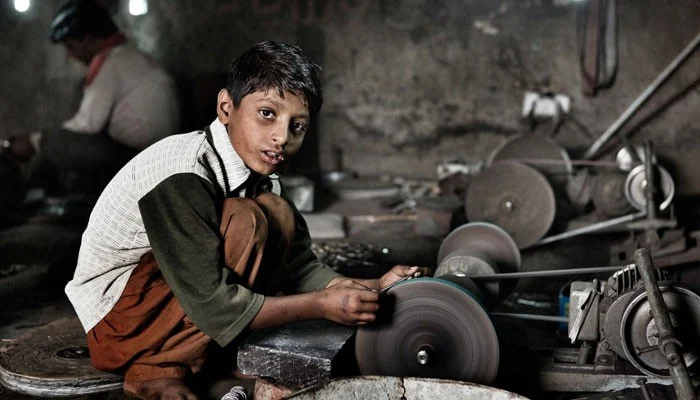The World Day against Child Labour would be marked on June 12 (today) across the globe including Pakistan to raise awareness about the plight of child labourers worldwide.
To call attention to the problem on this day, every year, various discussion events, seminars, and walks are held globally on June 12 to mark the day. Experts told APP on Sunday that hundreds of millions of girls and boys around the world are affected due to the child labour menace.
It is a social stigma on the forehead of humanity and a gigantic problem in both developing and industrialised countries and low-income communities, they said. About 3.3 million of Pakistani children are trapped in child labour, who are deprived of their childhood, their health and education.
They are forced to spend a life of poverty and want, the United Nations Childrens Fund (UNICEF) says in its report. To prevent child labour, global organisations like the International Labor Organisation (ILO) and SPARC must work jointly to save children from the curse of child labour.
The government should also help reduce poverty so that parents are not forced to send their children to work, people concerned demand. Children in all provinces of Pakistan are being exploited physically, morally, socially and mentally.
Ms Munawar Sultana, National Project Coordinator, Asia Regional Child Labour (ARC) project, said that around 160 million children aged 5 to 17 years engaged in child labour in 2020, with 79 million children involved in hazardous work.
A total of 160 million children 63 million girls and 97 million boys are in child labour globally, accounting for almost one in 10 of all children worldwide.
Mr. Peter Buwembo, officer-in-charge, ILO Country Office, in a statement on child labour, emphasised the significance of reliable data on child labour. He mentioned that an ongoing child labour survey in Pakistan would generate updated and accurate evidence for programme and policies.
He acknowledged the Government of Pakistan for ratifying all eight fundamental conventions of the ILO including C182 in 2001 and C138 in 2006 and enacting national and sub-national legislation, prohibiting the employment of children in general and hazardous work in particular.
Mr. Buwembo underscored the need for harmonizing the age of children in all relevant laws by federal and provincial governments, urging all stakeholders to work together for a long-lasting solution and accelerating progress towards achieving the SDG targets by 2025.
According to a recent study report of the Pakistan Institute of Development Economics (PIDE), the growth of girl workers is higher as compared to boys. The industrial structure shows that at the national level and in the rural area.










